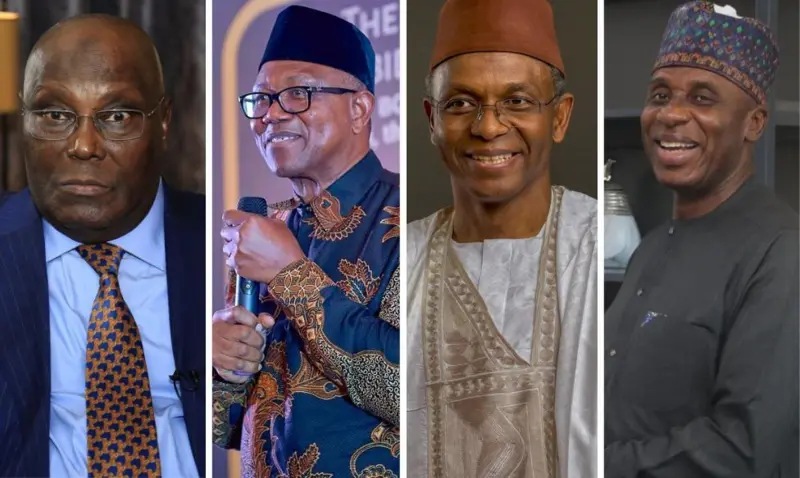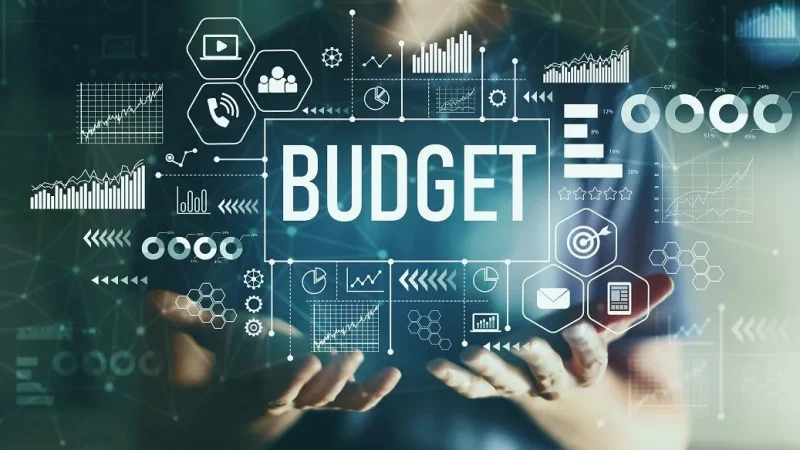By Chidi Amuta
Nigeria’s 2027 presidential election will be a nasty duel between two chaotic coalitions of politicians. Both coalitions are curiously fueled by fear. For the APC ruling coalition, it is the fear of being challenged and possibly thrown out of power. It is that fear and its insecurity that fueled the drift of the APC towards degenerating into a virtual one party oligarchy. In the panic and anxiety, the APC was busy swallowing up politicians and frightened parties into a virtual single party. That was before the birth of the ADC coalition.
As a counterweight, we have just witnessed the birth of the ADC, a yet incoherent coalition of equally frightened politicians. They are dedicated to sacking Bola Tinubu from his lucrative job and rent free Abuja accommodation. The fear on the side of the ruling APC is the fear of losing incumbency power with all that traffic of money and influence. On their part, politicians in the opposition ADC coalition are mostly in mortal fear of a future lifetime in the political wilderness. It is the fear of lifelong political irrelevance, of imminent poverty of means and name recognition.
United by fear and desperate for power, both camps are poised to wage a nasty political war with interesting dimensions in 2027. Already, there is nervous panic within the APC and the government. Aso Rock minions are screaming aloud even if the wolf is merely still a shadow. Even before they get to know what the ADC is all about, incumbent choristers are predictably swearing by Mr. Tinubu’s survival powers. On their part, the gathering opposition politicians have served Mr. Tinubu quit notice.
There is however a very consequential difference between both camps and the fears that currently rule them. The APC coalition has a defined leadership. It is all about Mr. Tinubu and the survival of his presidency onto a second term. On this, there is no guess work. The APC bloc is in power and office. APC devotees know and can swear by Mr. Tinubu. They know Mr. Tinubu well, warts and all. They know their man, his political strengths and weaknesses. They know his limitations as a leader, his controversial resume, his shifting classmates, his bad English and atrocious elocution. The APC clan know the lineup of their leadership – the Akpabios, Wikes, Gandudjes, the Umahis and Matawalles of this world. There is no guesswork as to where the money for the 2027 war chest is going to come from. Fighting an incumbent government means fighting the entire machinery of state, the security apparatus, the business support muscle of the state and its logistical prowess.
On the contrary, the ADC coalition is a zone of infinite uncertainty. No one knows its precise leadership. If you ask me, it is a ship with multiple captains. All the arrow heads of the coalition are all “presidents” in waiting. If you lock all of them up in one room with a mandate to emerge a day later with a leader who shall wear the mantle of ‘president’ come the 2027 election, you will be shocked when the door reopens. There will be many ‘presidents’ all dressed up to run: Peter Obi, Atiku Abubakar, Rotimi Amaechi, Nasir El-Rufai, Kayode Fayemi etc.
In effect, beneath the fanfare of the announcement of a coalition, very little is settled about the leadership, structure or strategies of the new coalition. It is still a nebulous promise dressed in hope. But hope is neither an agenda nor a programme. Perhaps it is still early in the day but the public needs to get a clearer idea of who is going to lead this pack in order to hedge sensible bets. The initial impression of the coalition as a conclave of equals leaves room for a struggle for leadership which could destabilize the coalition. Inbuilt in the potential leadership tussle are certain constants of Nigeria’s political reality. The north-south balance of power, the Christian-Muslim dance, the generational question and the reality of an emerging youth majority and urban population question.
If indeed the ADC coalition overcomes its inherent leadership contradictions, it may have to resort to the mechanisms of a party primary in order to sort itself out on the matter of power sharing. Once a party convention resolves the leadership power sharing questions, the coalition should pretty much be ready to face the APC.
Prior to now, the Tinubu political machinery was at an advanced stage to dominate the entire political space by 2027. A gale of defections and decampments from everywhere into the ruling APC raised fears of the onset of a curious one-party state. Those who were not migrating to the APC were left in the other besieged parties, waiting either to be annexed by the all mighty APC or cast away in a looming political wilderness.
The few significant parties outside the APC orbit were well within easy reach of the devious squad of the ruling party and its many recruitment agents. Mr. Tinubu’s political Warrant Chief, Mr. Wike, assigned himself the job of destabilizing the PDP permanently. Inside the besieged APC, he recruited his own conclave of compliant governors – the Group of 5 – who had all been promised ambassadorial jobs by the Tinubu government. The rest of the herd of Nigerian politicians outside the ambit of the APC were scattered and groping. The idea of a political coalition was always alive for those who know the Nigerian political landscape. It was a matter of when. The broad aim was clear: chase away Mr. Tinubu from a job he grabbed and can hardly do.
READ ALSO: Rivers: Anatomy of a crooked truce
Yet, chasing Tinubu out of the Villa may not be so easy. Nor is it the most difficult task before the ADC coalition. Tinubu is not a political soft cookey. He has vast experience. He is either equipped with vast troves of cash or knows too many people who can drown the Atlantic in cash at short notice. He has a very deep and stubbornly predictable home base. The Yorubas are many and politically sophisticated. They do not need to be lectured on their collective self-interest or their interest in the Nigerian enterprise. That home base can be marshaled into political solidarity when threatened in the larger Nigerian landscape. It may not be enough to guarantee anyone an automatic residency in the villa. But it guarantees Tinubu some political asset base to fall back on.
Tinubu is backed by a massive political party which Buhari built on the tottering edifice and ruins of the dying PDP. Tinubu’s APC inherited an unwritten political alliance with the street north followership of the xenophobic Buhari and his army of imported armed zealots and jihadist fundamentalists. Thus armed, Tinubu will not be an easy pushover.
The gathering ADC opposition is also a vast political war machine but one that is still mostly a potential power base. Its power lies in the demographics of injured masses. Over ten years of APC rule has severely injured the vast majority of ordinary Nigerians across board. Among the rural and urban majority hunger and hardship are raging like wild fire. Nearly all the indices of poverty are in free play among Nigerians. A party and leadership that had inflicted such hardship on most people deserves the penalty of rejection at the ballot. That is the hope of the ADC coalition.
The APC government has a trove of claims to justify wasting the last two years. It has claimed all manner of bogus achievements under the banner of something called “renewed hope agenda”. It boasts an avalanche of Power Point presentations ranging from phantom GDP projections, hundreds of millions of dollars borrowed, cash payouts to students, traders, etc. Taxes, levies and charges abound. Morgues and undertakers are doing big business.
Over and above the appeal to a populist crowd, the emergence of the ADC quickly highlights an urgent need in the Nigerian political party system. The emergence of the ADC is a necessary progression towards an ideal two party architecture. Whatever the APC stands for, Nigerians expect the opposition ADC to counter it at the level of ideas, policies and socio political vision. For whatever it is worth, the emergence of an opposition coalition is a positive development for the development of the Nigerian political party system. The great majority of viable and credible democracies around the world have evolved into two party systems.
By its acronym and scant policy statements, the APC is a presumptive ‘progressive’ party. It opposes a non-existent conservative formation. But the truth of course is that the APC is both a progressive, centrist and Conservative Party all rolled into one. Most of its leaders and members are starkly ignorant and illiterate of where they stand on the spectrum of political ideals. It does not matter what the APC stands for or does not stand for. Whether it likes it or not, the ADC has to stand for something in direct opposition to the ruling party.
Therefore, against the widespread hunger of today, the ADC must stand for food for all; in place of the massive un-employment, it must posit opportunities to put Nigeria back to work; in place of widespread insecurity, the new coalition must posit a template for a more secure Nigeria. Tax relief for the poor must replace draconian taxes, levies, tariffs and wicked charges on fuel, energy, medicines, books and transportation.
In sum then, the ADC must articulate a bottom up social democratic platform. This must be in the form of an actionable manifesto in the hands of every literate Nigerian. Above that, the new party must communicate and drive for an elite consensus on this alternative social democratic template. In effect then, the mandate sought by the new coalition must be based on a practical commitment to a fairer Nigeria.





